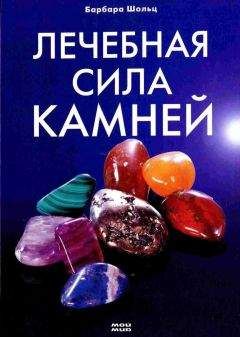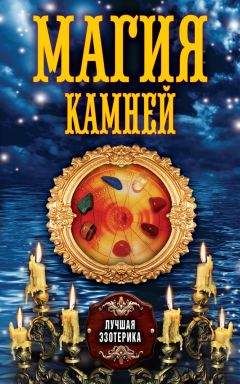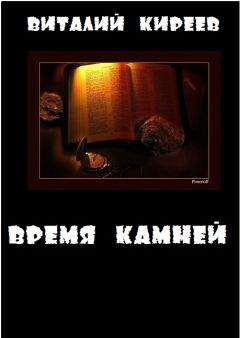Juliet Marillier - Hearts Blood
The lawman, Colum, and his bailiffs had seen Ita and Cillian off the premises after stern words. My kinsfolk would be subject to the full force of the law. Colum had been working on our behalf since Donal’s letter first reached him, and he had news for me: there were indeed funds available to us, silver carefully set away for the purpose of providing for Maraid and me on our father’s death.There was no need for me to earn a living, at least not right away. There would be time to set our house in order; time to come to terms with our losses.
I had offered the hospitality of the house to Brendan, Fidelma and Aengus. After a happy reunion, Fianait had helped me prepare beds while Fidelma cooked supper. Now our guests were all abed; it had been a long day. I had seen the look on Fidelma’s face as she watched my sister push her food around her platter, eating almost nothing. I had noticed Brendan scrutinizing little Etain. Even to my inexpert gaze, my niece looked scrawny and pallid.
“I can’t tell you,” Maraid said now. “You’ll despise me, Caitrin.”
“I won’t,” I told her.“I’m your sister and I’m here to help make things better. Ita and Cillian are gone. We have the house; we have resources, Maraid. We have our self-respect. Those things can’t bring Shea back, I know. But . . .” I stopped myself. I knew all too well how it felt, that empty, blank hopelessness. “You need to tell someone,” I said. “Please, Maraid.”
“Etain,” she whispered. “Sometimes I don’t even like her very much, Caitrin. Sometimes I wish she wasn’t here. She cries all the time, as if she hates me. I’m no good as a mother. I should never have had a child.”
Silently I cursed Ita, for her influence was written all over this.
“Is that all?” I asked.
Maraid turned bleak eyes on me. “Isn’t it enough?”
“I’m not shocked.” But I was, just a little. Etain was so small and innocent, so fragile. “Maraid, you should let Brendan examine you in the morning.You look ill, not just sad and tired, but . . . to be honest, you look half-starved. And although I don’t know much about these things, people do say that if you’re nursing an infant you should eat more than usual, not less. Etain doesn’t hate you.A little baby isn’t capable of hate. She’s probably just hungry.”
“Ita said I should stop trying to feed her. She said goat’s milk would be better. But I do want to nurse her, Caitrin. I always thought I’d be a good mother. I don’t want to be a failure.”
“Well, then.” My attempt at brisk confidence fell something short. Maraid was crying and so was I. “Let’s make a sisters’ pact right now.” I headed for the pantry, where I filled a small bowl with suppertime leftovers—a little pease pudding, a scoop of soft cheese, a handful of dried plums.
“What are you doing, Caitrin?”
I set the bowl before her, then poured two cups of ale. “This is the agreement. You eat, and while you’re eating—I mean properly, not just playing with your food—I’ll tell you a story. Tomorrow, the same, but I’ll tell some of the story each time you feed Etain too.” Fianait had taken the baby away to settle her for the night. I would enlist Fianait’s help in the morning.
“A story? What story?” Maraid eyed the little meal without enthusiasm.
“An exciting one about a girl who runs away from home and goes to . . .You’ll have to start eating to find out where.”
“All right.” She picked up a single dried plum; I did not speak until she put it in her mouth and began to chew. A fleeting smile crossed her face. “You never used to be so bossy, Caitrin.What happened to you?”
“This girl,” I said, holding my ale cup between my hands, “had been very frightened; so frightened that she had lost sight of what was real and what wasn’t. So frightened that people thought she was out of her wits. She felt all alone in the world; she thought everyone she loved had deserted her.Then one day, out of the blue, she found the courage to flee. She ran, she walked, she took rides, she slept under hedges and in the shelter of haystacks, until the day a carter dropped her off in the middle of nowhere and drove away without a word.”
Intent on the story, my sister had stopped eating. I waited, eyes on the bowl.
“Bully,” Maraid said, getting up to fetch herself a spoon. “And then what?”
I told her how the girl had met two friendly strangers who had vanished when they were most needed; how she had prayed her way into a fortified village; how she had raced off up a hill in pursuit of a man named Magnus, and had been helped by a gnomelike person and a giant hound.
“And then,” I said as my sister put a piece of cheese in her mouth,“she wandered into a lovely little garden, all overgrown but full of bright flowers and singing birds, with a birch tree in the center, and a bench on which lay a book. Nobody was in sight. She wandered about, seeing how cleverly the plants had been chosen, and there, in a corner under a comfrey bush, she saw a clump of heart’s blood.”
Maraid made a little sound; she knew what a treasure that herb was.
“She stooped to admire it, and at that moment a commanding voice rang out behind her: Don’t touch that!” I stopped to take a mouthful of my ale, Anluan’s image strong in my mind: pale as snow, red as fire, blue as speedwell, sad as a broken heart.
“Who was it?”
“That must wait until next time.” I wanted to be sure I had captured her or this experiment might be short-lived. Her grief was deep; it would not be easily healed.
“Was it an ogre? A beast? A handsome prince?”
I smiled. “Not exactly.”
“Is this a true story, Caitrin?” Maraid had eaten almost everything I had given her; now she was sipping her ale.
“I’ll let you make your own judgment. I haven’t told it to anyone else. If I did, most folk would think I really was mad.”
“That’s what Ita told me, Caitrin. She said that after I left here, you became completely unhinged. She said you couldn’t even keep yourself clean. She told me you bolted with only the clothes on your back. She said you were never coming home.”
“I don’t suppose she told you that Cillian came after me, and found me, and tried to force me back here.”
Her eyes went round. “He found you and they didn’t tell me? How could they do that? What happened, Caitrin?”
“Tomorrow,” I said. “It’s a long story.”
As summer became autumn my sister began to mend, along with the house in which we had been raised with such love and hope. The milestones were small but each was cherished: the first time Maraid smiled; the first time she offered to help prepare a meal; the day when Fidelma and Brendan decided we could cope without them and returned home. They told us we would be welcome in their house any time we wished to pay them a visit, and I offered the same invitation. Their kindness had been a remarkable gift.
Fianait and I scrubbed the house from top to toe. We aired bedding and set flowers on windowsills.We baked bread, brewed ale and made preserves. I hired a boy to help with the outside work, and he whistled as he replenished the wood pile and dug over the vegetable patch. Slowly our old home began to get its heart back, and my sister hers.
As Maraid’s cheeks regained their rosy blush and her body began to fill out, Etain blossomed, turning before our eyes from a pale waif to a bonny, healthy babe. The fretful crying ceased. She bellowed for her meals, drank with enthusiasm, then slept in blissful silence. I liked to set her free of her swaddling cloths and see her kick her legs and stretch her arms as if eager for what the world might have to offer. I loved to watch her sleeping, for there was a tender mystery in the little face in repose, closed lids concealing secret thoughts beyond the comprehension of all but an infant new-minted. Looking at Etain, I longed for a child of my own.
There came a day when I passed the open doorway of the bedchamber and heard my sister talking to the baby as she fed her.
“He made the most beautiful music, Etain; he had a voice that would melt the heart of a stone statue, and his fingers on the harp were as light as swallows in the sky. He was the best papa you could ever have had, my love, the best in all the world. His eyes were just like yours, green as grass and bright as dewdrops. Never say he’s gone. Only that he’s nearby, and watching over us every moment of the day.”
I tiptoed away, eyes streaming, knowing a far greater milestone had been passed. As I stood in the courtyard trying to compose myself, the longing for Anluan stabbed sharp as glass in my breast. I would never hold his child in my arms; I would never lie with him and experience the joy Maraid had had in Shea. My body ached for that loss. My heart bled for it.
Maraid had heard my story in small instalments. Fianait, too, had listened with rapt attention as it gradually unfolded. I told of the dear, odd friends I had made at Whistling Tor, the folk I had had to leave behind. I described every part of that strange and eventful summer. Almost every part. I did not show Maraid Anluan’s book, though I had long ago turned the final page to find, not a grim decision to banish me, but this perfect reflection of my own feelings:
At last I begin to understand why my father acted as he did. To lose you is to spill my heart’s blood. I do not know if I can bear the pain.
He must have written this before he came to see me that night; before he told me we must part forever. I had read it over and over. I kept the little book under my pillow and looked at it late at night by candlelight, or first thing in the morning, when even Etain still slept. I tried to understand why he had been so cold that night if his heart had been breaking, just like mine. Perhaps that had been the only way he could bring himself to utter the decree of banishment.
The mirror was my link with him, a frustrating, unreliable guide to what was happening at Whistling Tor in my absence. I looked in it often, but not while the others were about, for while such eldritch phenomena were part and parcel of life in Anluan’s household, they did not belong in Market Cross.
Sometimes the mirror showed me the blue sky of an imaginary summer, and sometimes my own reflection, dark curls neat, features composed, eyes a little desperate. But sometimes I saw Whistling Tor, and Anluan in the garden with Muirne, his tall figure stooping to listen, her smaller one gesturing as she tried to convince him of something. I pondered all I had learned of her, putting together a chance remark here, another there, and imagined her whispering in Anluan’s ear: You cannot win this.There is no hope.
And yet, he did not give way to despair. On a day when autumn was well advanced, and gusty winds sent dead leaves dancing in the courtyard, I closed the bedchamber door, took the mirror down from the shelf where I kept it and sat down to look for answers.What I saw warmed me; it made me want to shout for joy. Men were gathered in the settlement, Tomas, Duald, a good number of them. They had makeshift weapons over their shoulders. Anluan and Magnus were there, too, and Anluan was addressing the assembled crowd, his head held high, his manner both calm and authoritative.
This vision dissolved to make way for another: a party of riders, not Normans, but Irish.They were waiting at the foot of the Tor.The brawny figure of Magnus came down the path, greeted them, then turned and led them up. The horses were restless as they traversed the winding way through the forest. No sign of the host, though I sensed their presence, watching. In the courtyard, Anluan stood on the steps before the main door with Rioghan beside him and Cathaír on guard behind. The riders dismounted, and Olcan came to lead the horses away. The chieftain of Whistling Tor stepped forward to greet the visitors, as any nobleman might do. There were white faces and nervous glances aplenty, but the visitors stood their ground, and their leader put his hands on Anluan’s shoulders as if they were friends, or perhaps kin. Brión of Whiteshore? Had Anluan somehow made peace with his mother’s family, despite the wrongs of the past? No sign of Muirne. I gazed at the man I loved, willing the mirror to show me more, but the image faded, leaving me looking into my own eyes. My heart was racing. He was doing it. He was bringing them all together. Maybe, just maybe, Anluan could beat the odds and win his unlikely war.
Autumn was passing quickly. Fianait set her hand to spinning and fashioned a warm shawl to cocoon the baby in. Phadraig, the boy who did our heavy work, brought a supply of firewood indoors and stacked it against the wall near the stove.The days grew shorter.
Our legal hearing came and went. I, who had once been turned by fear into a silent, shivering apology for a woman, stood up and answered the judge’s questions with calm competence. I had told my kinsfolk that I never wanted to see them again, but on that day I faced them across the court without flinching. I no longer felt anger. Maraid’s recovery had moderated the harsh feelings that had arisen in me when I first saw her again. I almost felt pity; pity that folk could be so eaten up by selfish greed that they lost all sight of humanity. Cillian was incoherent under questioning. Ita was shrill and bitter, unable to understand how she had erred. They brought one or two witnesses, folk of my acquaintance who gave accounts of how distracted I had been after my father’s death, how distant and odd my manner. We had witnesses, too—those who could testify to Ita’s refusal to let anyone visit me in that dark time, those who remembered her turning down an offer of a physician’s services, those who had known me since I was a child and believed all that had ailed me was grief. In addition, Brendan traveled all the way to Market Cross from his home town in the west to testify in person as to my sanity.When it was over, and reparations determined at a level likely to see Ita and Cillian lose not only our property but their own as well, I thanked Colum and the other lawmen, came home with my family and closed the door on the past.
The days grew shorter still. Fianait baked spice cakes, Maraid brewed mulled ale, and we invited Colum and his wife to visit us and admire the baby. Some of Father’s friends came too, people who had stepped back while Ita ruled the house. If I did not quite forgive them for once believing her story of my madness, I knew I must make peace with them.
When everyone was gone, and a yawning Fianait had retired to bed, Maraid and I sat awhile before the fire, she with Etain at the breast, I staring into the flames. I no longer had to tell a story to encourage my sister to eat or tend to her child. She was well now, and if sadness still lingered in her, she did not let it swallow up her love for Etain or her hope for the future.
“Caitrin?”
“Mm?”
“When are you going to start scribing again? We have funds now, plenty to be going on with.You could buy inks, parchment, all the things you need to restock the workroom.”
I had hardly stepped inside the workroom since I came home. I had not even considered beginning again. But Maraid was right; what Father had left us would not keep us for the rest of our lives. Sooner or later I must seek out new commissions. It would be hard. Few of our former clients had known how large a part I had played in the execution of the fine documents in which we had specialized.They might be reluctant to give me a trial. Still, it wasn’t impossible. Colum might be prepared to recommend me locally. If I was not bold enough to seek commissions, I could always go and work for Donal in Stony Ford, performing the relatively simple tasks of copying and letter writing. I could summon little enthusiasm for any of it.



